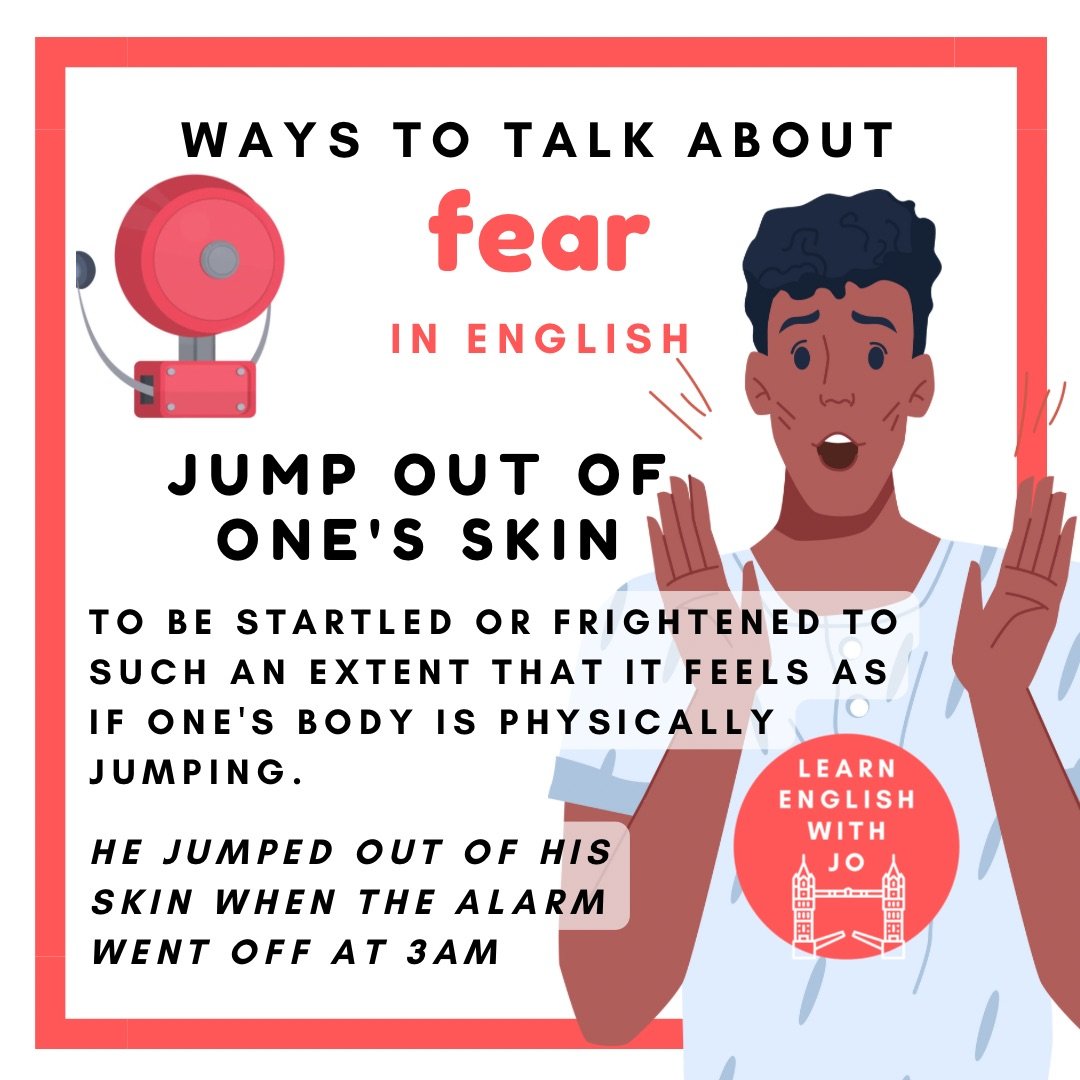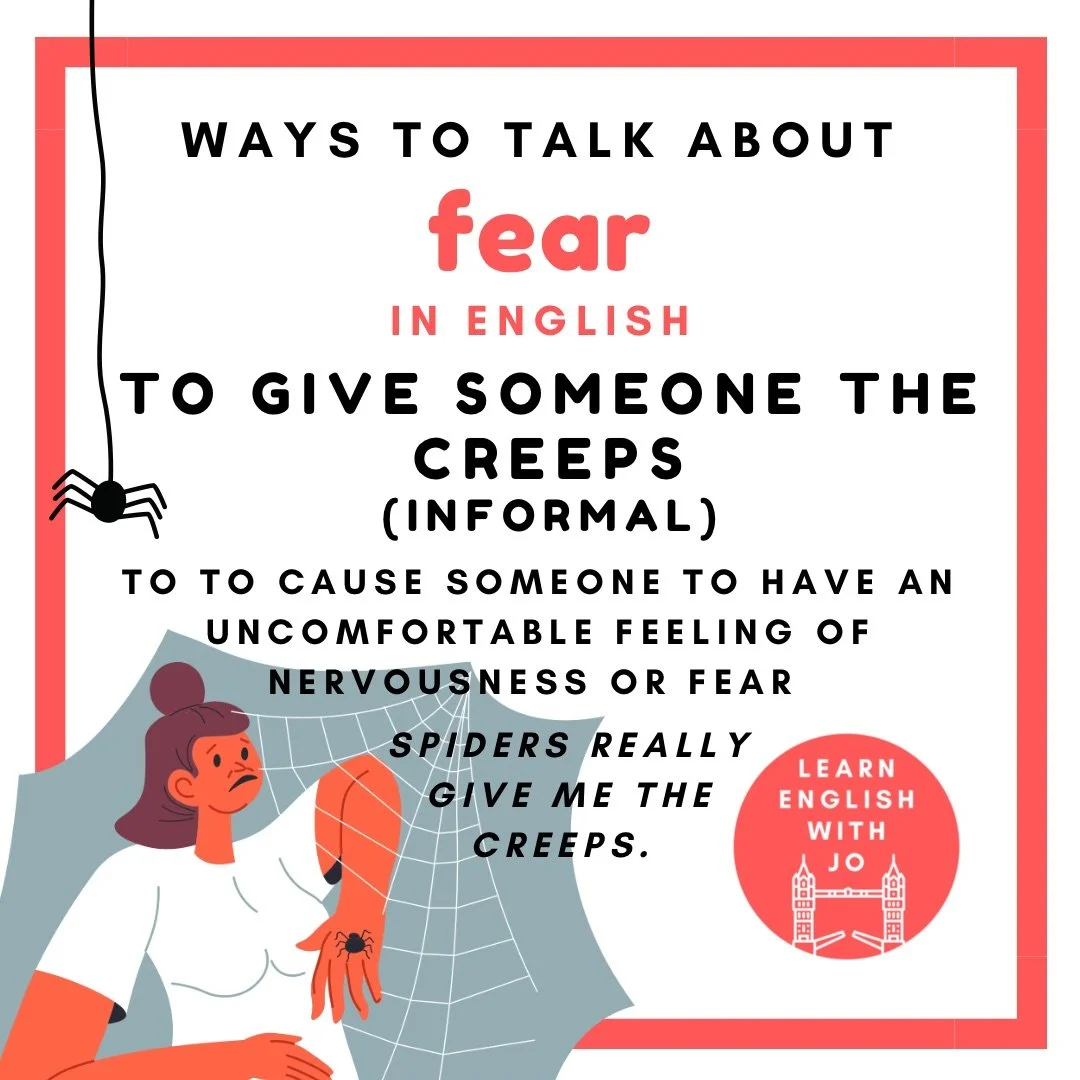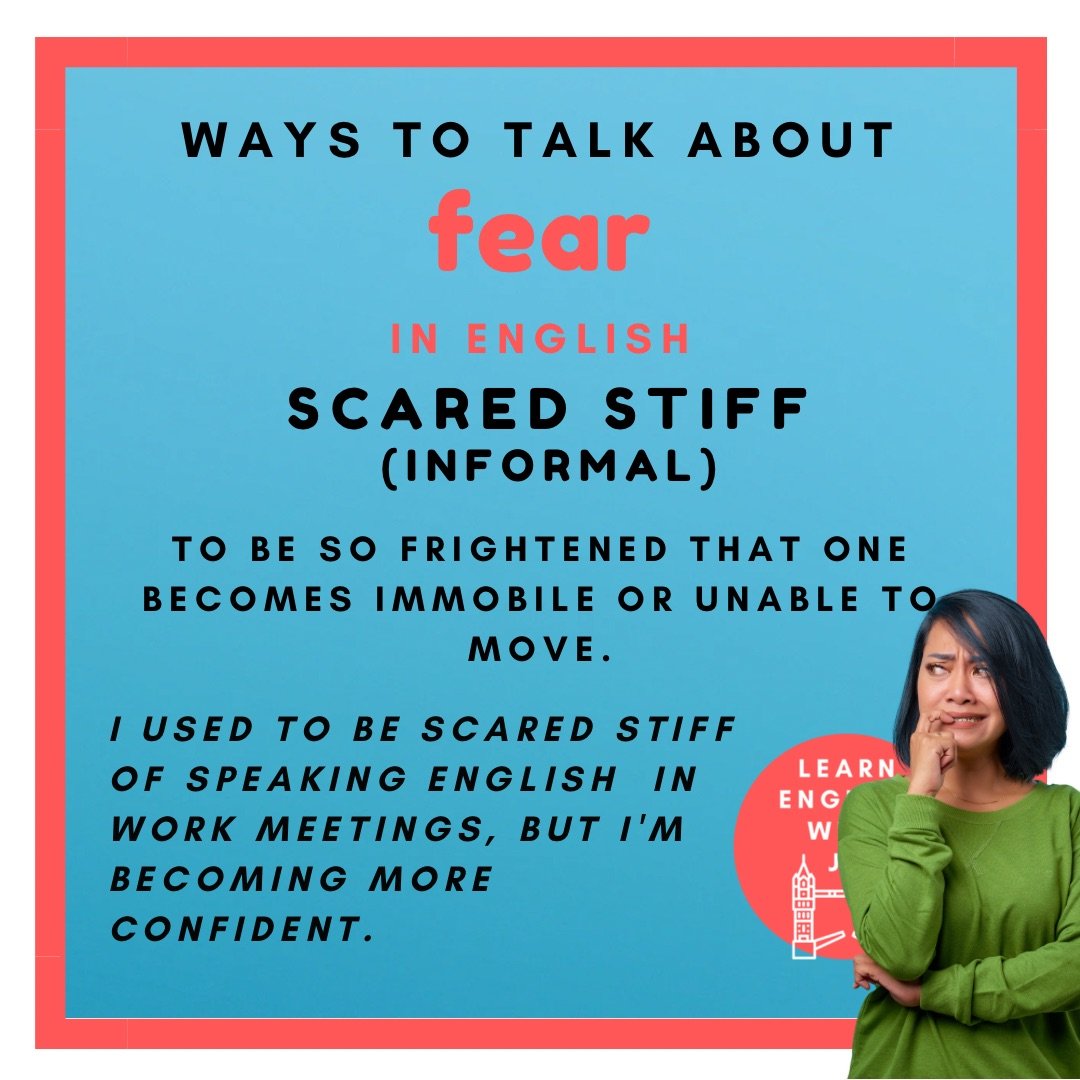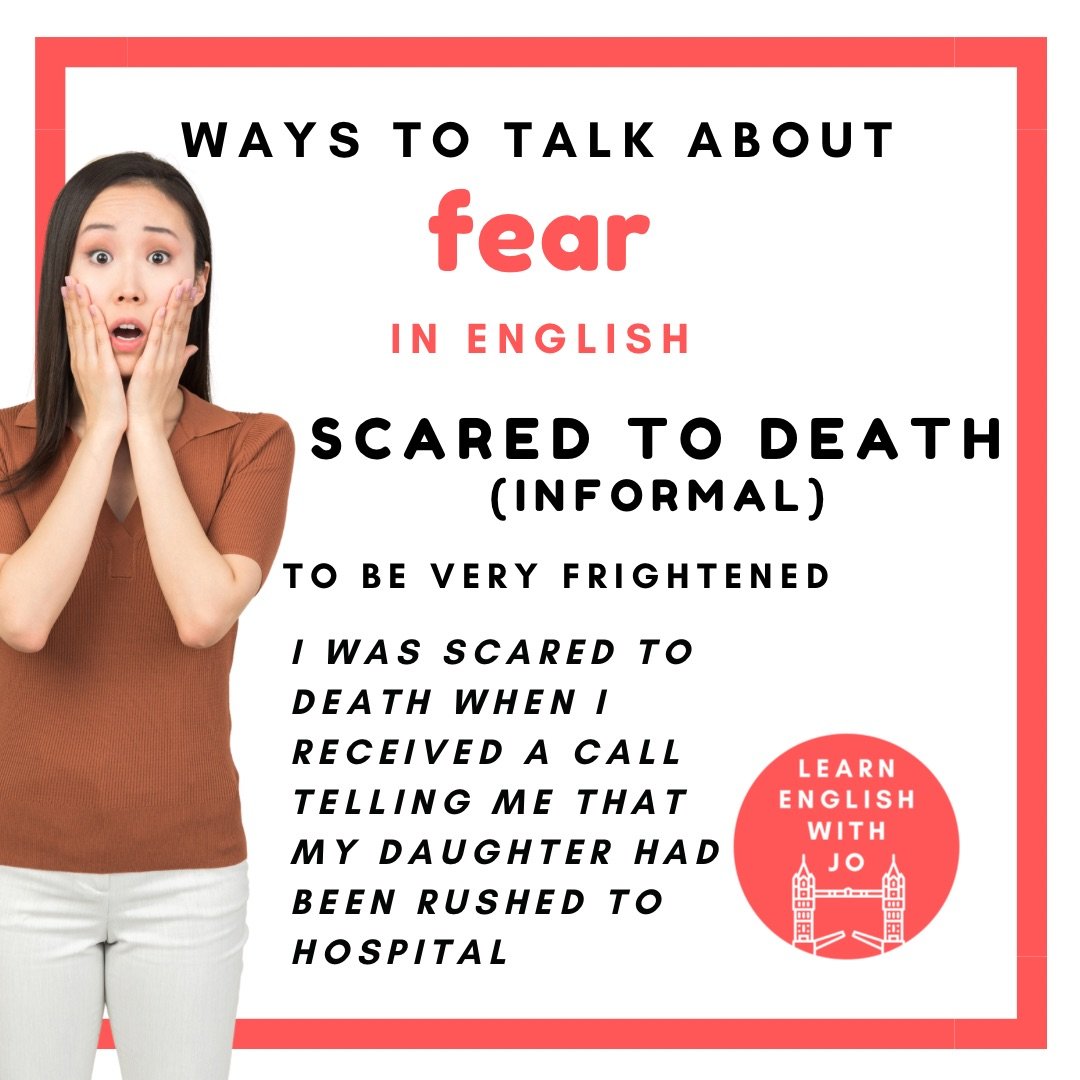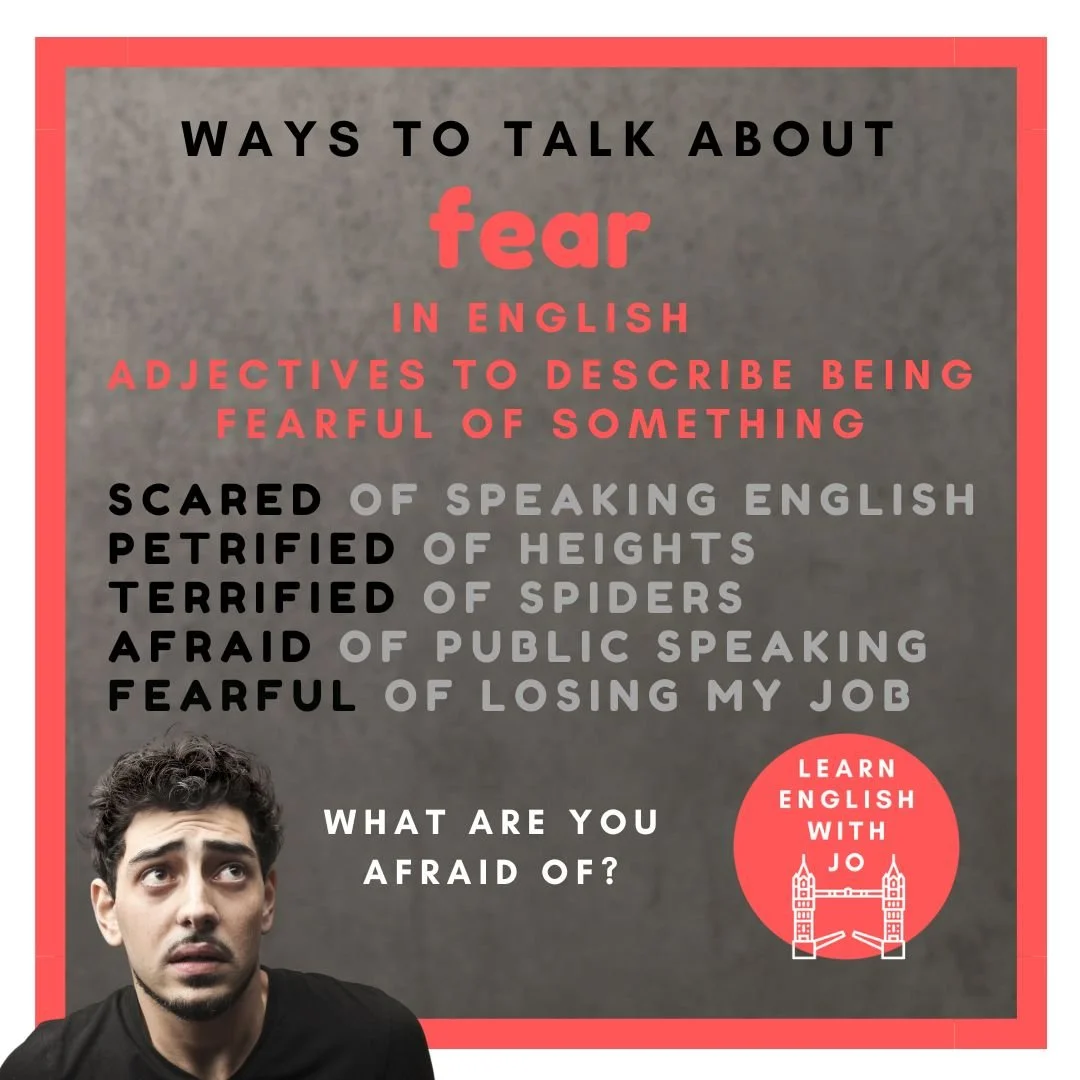Ways to talk about fear in English
As speakers and students of foreign languages, fear often creeps up on us when it comes to having to actually open our mouths and communicate. The anxiety of making mistakes or being misunderstood can be overwhelming. However, fear is a natural emotion that everyone experiences, and being able to express it effectively can help alleviate its hold on us.
In this blog post, we’ll explore a variety of ways to talk about all sorts of fears in English. Whether you are afraid of speaking English in an interview or you have a phobia of spiders, there are a whole variety of terms that you can use to express your fear.
Jump out of one's skin
This idiom vividly describes the intense and sudden fright that can cause a person to react instinctively. For example, "The loud crash made me jump out of my skin!"
To give someone the creeps
When something or someone gives you an eerie, unsettling feeling, you can use this phrase. For instance, "That abandoned house gives me the creeps."
Heart in one's mouth
This expression reflects a state of extreme fear or anxiety. It emphasizes the sensation of one's heart feeling like it's lodged in their throat. For instance, "As I stood on the edge of the cliff, my heart was in my mouth."
Freaked out
To be "freaked out" means to be extremely scared or disturbed by something. For example, "I was freaked out by the horror movie I watched last night."
Chicken out
When someone decides not to do something due to fear or lack of courage, they "chicken out." For instance, "I wanted to go skydiving, but I chickened out at the last minute."
Scared stiff
This phrase implies being so terrified that one becomes physically frozen or unable to move. For example, "The sight of the spider left me scared stiff."
Scared to death
Used to emphasize extreme fear, this phrase implies being terrified to the point of feeling as if one might die. For instance, "I'm scared to death of public speaking."
Scared/petrified/terrified/afraid/fearful of
These are more general expressions to convey fear. They can be followed by a specific object or situation that evokes the fear. For example, "She is petrified of heights," or "He is afraid of snakes."

